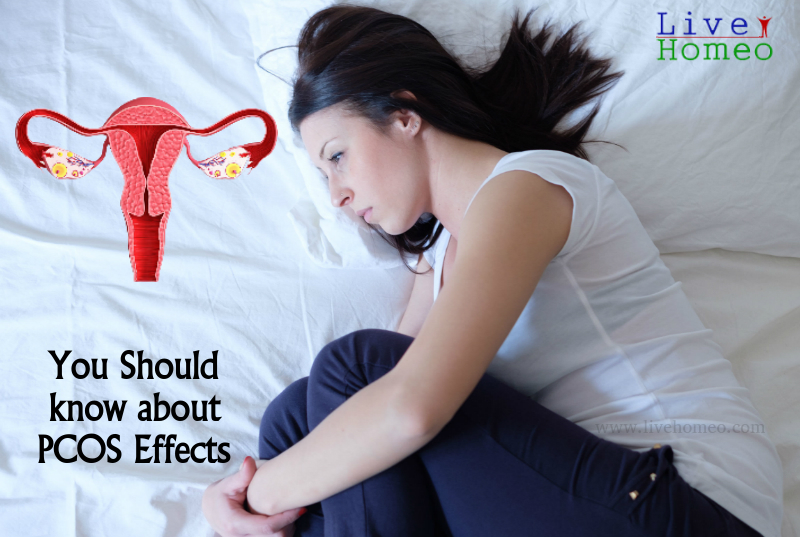PCOS
Polycystic Ovary Syndrome (PCOS) is an endocrine disorder most commonly seen in women of reproductive age. It is a common female disorder where women face cysts on outer edge of ovaries and enlarged ovaries due to hormonal imbalance. PCOS by affecting ovulation causes fertility problems. Weight gain, menstrual problems, infertility, hirsutism, acne, sleeping disorders like sleep apnea, hair thinning on scalp and headache are few common symptoms seen in women with PCOS. Due to these symptoms infertility, weight gain, hair loss and unusual hair growth on face, women with PCOS are at an increased risk of developing depression and anxiety disorders. Women with PCOS also face heavy and painful periods. Symptoms and severity of symptoms differ for each woman, as they depend on the cause and type of PCOS. Though the cause of PCOS is not clear, it is believed that problems in metabolism can lead to PCOS. PCOS is classified in to different types like insulin resistant PCOS, immune related PCOS or inflammatory PCOS, post pill or pill induced PCOS and environmental PCOS. Here are few factors, which can trigger PCOS
- Genetics/ family history
- Lifestyle
- Obesity
- Lack of physical activities
- Unhealthy diet
- Hormonal imbalance
- Low estrogen and progesterone levels
- Excess production of androgen
- Insulin resistance

Future effects of PCOS
In most of the cases, women with PCOS may not notice that they have PCOS problem. If not managed properly or left untreated PCOS causes several long term health complications like
- Type 2 diabetes
- Heart problems like heart attack and stroke
- Endometrial cancer
- Metabolic syndrome
- Obstructive sleep apnea
- Infertility
- Gestational diabetes
- Premature delivery or miscarriages
- Hypertension
- Obesity
- High cholesterol levels
- Liver inflammation
- Mood disorders
It is very difficult for women with PCOS to get conceived. Even after conceiving they face many health complications like gestational diabetes (high sugar levels in conceived women), miscarriages and premature deliveries. In few cases PCOS can also lead to PCOD i.e. multiple cysts on their ovaries.
Ways to avoid PCOS
Polycystic Ovary Syndrome (PCOS) cannot be treated or eliminated entirely. But, it can be controlled and the symptoms and complications of PCOS can also be controlled to a vast extent by following few lifestyle changes and health tips like
- Practicing different yoga asanas can help women to control several symptoms and complications of PCOS like heavy weight, irregular menstruation and others.
- Regular exercises along with healthy diet helps to control excess weight and sugar levels in your body. Include high fibre foods and fresh fruits and vegetables which help to control obesity, heart problems and also others.
- Taking birth control pills also helps to regularise your periods and you can take them by consulting your doctors.
- Control your stress levels, as high stress can again lead to hormonal imbalance.
- Women with PCOS are generally advised to quit smoking and alcohol consumption, as these two increases androgen levels in your body which further worsens the condition.
1
